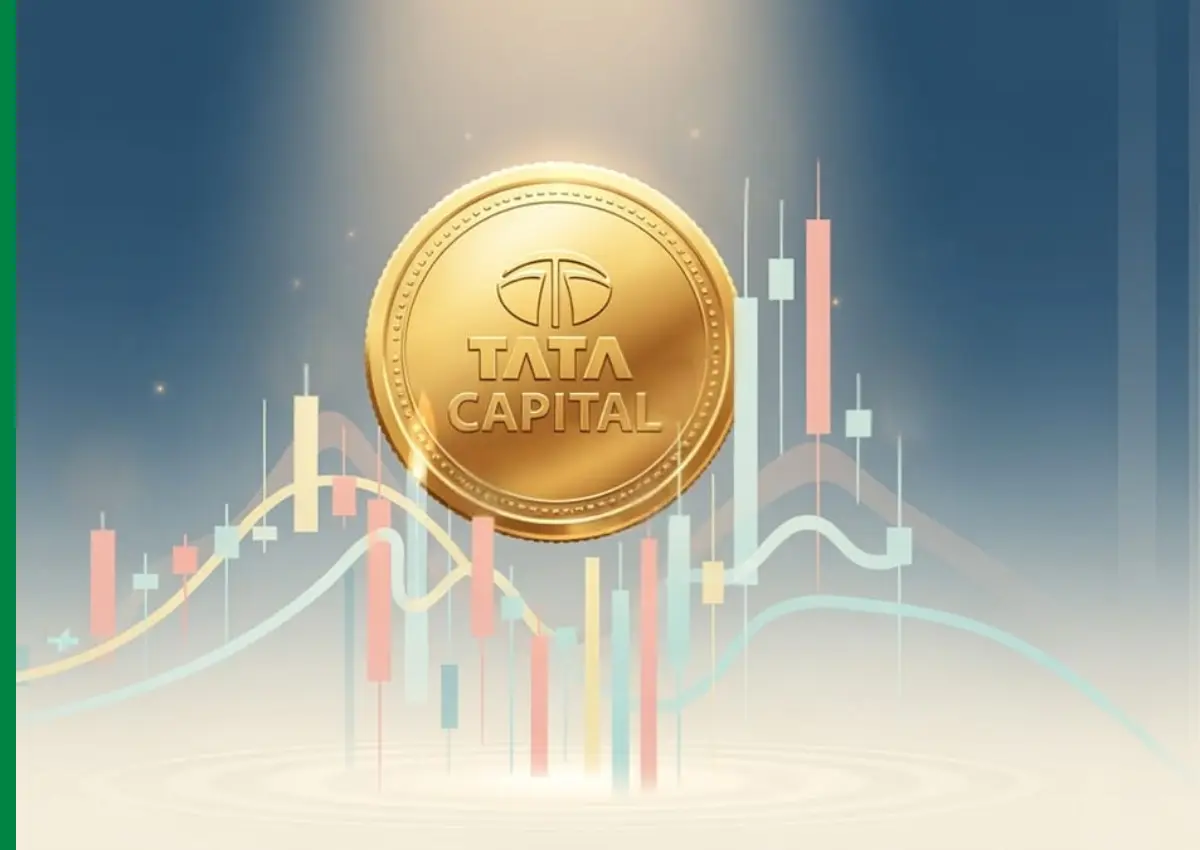The ties between President Trump and the Federal Reserve have never been worse and are the cause of rising tensions, unlike anything seen before, which threaten to redefine American monetary policy for decades to come. The current efforts by Trump to sack Federal Reserve Governor Lisa Cook have led to a constitutional crisis whose repercussions may extend to the US economy and the world financial markets at large.
Let’s know about Trump vs. the Federal Reserve!
In a shocking but unprecedented decision that has rattled the financial circles, President Trump declared to terminate Federal Reserve Governor Lisa Cook, citing mortgage fraud charges against him. This is the first such step in US history when a president tried to impeach a member of the Fed on the grounds of improper conduct.
Cook has thus dismissed Trump and declared he will go to court to challenge his powers. Her stand has put up a possible Supreme Court challenge that can fundamentally shift the power balance between the two arms of the government and the central banking system in the country.
The charges against Cook are as a result of some differences in mortgage application forms, according to what Trump administration officials term a criminal referral by the director of the Federal Housing Finance Agency, William Pulte. Commerce Secretary Howard Lutnick and others defended the move, saying, “The question that needs to be asked is, did she commit mortgage fraud? Yes or no and btw you have been caught getting caught engaging in mortgage fraud please just get out of the federal government.
Understanding the Federal Reserve’s Role and Independence
To get a greater understanding regarding why this controversy is made, one should grasp the special status of the Federal Reserve in American government. The Fed, established in 1913 has been an independent central bank since the late seventies with two mandates: stability in prices and maximum employment.
This autonomy is not incidental—it is a well-thought-out feature that enables the Fed to come up with monetary policy decisions according to economic data and not according to political influence. First, as economist Claudia Sahm explains, the Fed is given its independence so that it can act in periods like now, when political leaders are interested in policies like tariff hikes that could reduce growth and increase inflation.
The seven-member Federal Reserve Board of Governors are given 14 year terms deliberately to remove them from any political cycles. This arrangement makes sure that the decisions made on monetary policy are undertaken with the background of long-term financial stability and not short-term political benefits.
Trump is increasingly frustrated with Fed policy
The open rivalry of President Trump and the Federal Reserve is not of recent origin, but it has become especially severe. He has in the past months been pushing lower interest rates in a bid to spur the economy growth and lower government borrowing expenses. His attacks on Fed Chairman Jay Powell have been especially incendiary, labeling him with such disparate adjectives as “numbskull” and “too late.”
The above frustration is because Trump feels that the current interest rate policy being conducted by the Fed is holding back economic growth. According to him, a reduction in the interest rates would increase GDP, generate employment, and reduce the cost of borrowing by the government as well as its citizens. The thinking represents his election pledge to quickly overcome inflationary pressures and turbo-charge the economy.
Nevertheless, economists are cautious of the dramatic effects of Trump in a matter of approaching refutation. Narayana Kocherlakota, the former president of the Minneapolis Fed, was uneasy: “I feel uneasy with this.” It appears as yet another way by the president to undermine independence in the monetary policy. This will result in poorer economic performance.
When Politics Interfered with Monetary Policy
The history can teach us of what occurs when political aspects are more essential than independence monetary policy. The most prominent one was that which happened during the presidency of Richard Nixon in the early 1970s.
Nixon was able to influence the Fed Chairman Arthur Burns to deliver expansionary monetary policies prior to the election in 1972. Although this assisted Nixon with his re-election, it later led to the high inflation rates of the late 1970s and early 1980s, where prices increased by more than 13 percent each year.
The more immediate warning of a quagmire is Turkish President Tayyip Erdogan involvement in the central bank of his country. Turkey was suffering the economic disaster when Erdogan dismissed the head of the central bank in 2021 and replaced him with a loyalist to cut interest rates. The lira plummeted, and the inflation went over 80%, destroying the economy of the country and the purchasing power of its citizens.
Risks that Political Interference Delays and Destroys Economic Merit
According to pundits, several major risks are attendant to the politicization of the Federal Reserve in case Trump is successful with the project:
Inflation Concerns
Artificially reduced interest rates are capable of overheating the economy, causing inflation- the very thing Trump promised to get rid of. Extremely cheap borrowing prices over an extended period sets off a spurt of excess demand that risks driving up the prices of all goods in the economy.
Market Instability
The financial markets are made dependent on Fed credibility as an independent body. As long as investors still believe that the Fed has the capability to combat inflation without depending on the government, their sense of security in the long-term investment may be satisfied by modest investment returns. This would ironically increase the costs of mortgages and borrowing funds—the exact opposite of what Trump wants.
Financial Implications to trends globally
The US Treasury bonds act as an international safe haven and the dollar is the main reserve currency the world over. A loss of confidence in the independence of US monetary policy can ripple through to the rest of the world financial system.
Current Market Reactions and Expert Analysis
So far, financial markets have shown relatively muted reactions to the Trump-Fed controversy. Stock indexes have declined slightly, and the dollar has weakened somewhat against other currencies. However, the 30-year Treasury yield has risen, indicating investor concerns about long-term inflation risks.
George Saravelos, head of foreign exchange research at Deutsche Bank, warned of “fiscal dominance”—a situation where the president exercises too much control over monetary policy. He noted, “There is no question in our view that the Fed is now subject to intensifying fiscal dominance risks. What is a bigger surprise to us is that the market is not more concerned.”
This relative market calm may reflect uncertainty about Trump’s ultimate success in reshaping the Fed, or it could indicate that investors haven’t fully grasped the potential long-term implications.
Legal and Constitutional Questions
The attempt to fire Lisa Cook raises fundamental constitutional questions about presidential power and Fed independence. Legal experts note that while the president has broad authority over federal agencies, the Supreme Court has previously recognized limits on presidential control over independent institutions like the Federal Reserve.
The dispute is likely heading to the Supreme Court, which recently issued rulings both expanding and limiting presidential authority over federal agencies. The outcome could establish crucial precedents for the balance of power between the executive branch and independent regulatory bodies.
Tim Mahedy, former senior advisor at the San Francisco Fed, characterized Trump’s move as a “naked attack on the independence of the Fed,” warning that Trump has already “somewhat politicized monetary policy” and is “breaking the cardinal rule of central banking: Criticize, but don’t politicize.”
What This Means for American Households
The implications of this Fed controversy extend far beyond Washington politics, potentially affecting every American’s financial well-being:
Mortgage Rates
If the Fed loses credibility, mortgage rates could actually increase as investors demand higher returns to compensate for inflation risks. This would worsen the already challenging housing affordability crisis facing millions of Americans.
Inflation Risks
Political interference could lead to poor monetary policy decisions that fuel inflation, eroding purchasing power and making everyday goods more expensive for working families.
Economic Stability
The Fed’s independence has been a cornerstone of US economic stability for decades. Undermining this independence could create boom-and-bust cycles that lead to more frequent and severe recessions.
The Broader Pattern of Institutional Challenges
Trump’s conflict with the Federal Reserve fits into a broader pattern of challenging traditional institutional norms and constraints on presidential power. This approach extends beyond monetary policy to include interactions with the judiciary, intelligence agencies, and other independent institutions.
Critics argue that this represents a fundamental threat to the checks and balances that have underpinned American economic and political stability. Supporters contend that Trump is simply trying to fulfill his campaign promises and implement policies that voters supported.
International Perspectives and Comparisons
The international community is watching this controversy closely, as US monetary policy has global implications. Many foreign observers point to countries like Turkey and Venezuela, where political interference in central banking led to economic disasters.
European Central Bank officials and other international monetary authorities have consistently emphasized the importance of central bank independence, viewing the US Federal Reserve as a model for institutional design.
Know Potential Scenarios
Several scenarios could unfold from this confrontation:
Legal Victory for Cook
If the courts rule that Trump lacks authority to fire Fed governors for policy disagreements, it could strengthen institutional independence but potentially escalate political tensions.
Successful Removal
If Trump succeeds in removing Cook and potentially other Fed members, it could fundamentally alter American monetary policy for decades, with uncertain economic consequences.
Congressional Intervention
Congress could potentially intervene through legislation or oversight hearings, though the current political composition makes dramatic action unlikely.
Market-Driven Resolution
If financial markets react negatively to continued uncertainty, the economic pressure might force a resolution or compromise.
Expert Recommendations and Warnings
Prominent economists have almost been unanimous in opposing politicization of the Federal Reserve. They point to the very low returns of the short-term political advantages of low interest rates and to the long-term risks created by compromising monetary policy independence.
According to the Economic Policy Institute, presidential control of the Fed would give a message to the economy that interest rates will no longer be set on the basis of sound data or economic conditions- but instead on the whims of the president.”
Members of the former Fed explain that the authority of the central bank is partly due to its credibility as well as the perceived independence of the central bank. When this credibility is destroyed it becomes very difficult to govern monetary policy and any economic crisis.
Final thoughts
The standoff between president Trump and the Federal Reserve is a severe test of American institutional strength. The consequences are likely to have further-reaching effects on not only monetary policy currently but also the very nature of economic governance in the years to come.
Even though Trump claims to be engaged in a war on economic growth and low interest rates on borrowed money, economic experts say that by so doing he may end up causing the reverse of economic growth and borrowing at low costs of money.
To the ordinary Americans, this does not come in the form of a theoretical debate of a political and economic nature. The solution to this debate could spell the difference between making mortgages cheaper or expensive, making inflation less of a problem or serious, and determining whether the US economy continues to enjoy its position of dominance.
With this never-before-seen confrontation being unleashed, one thing is indisputably certain: the stakes could not be higher. The autonomy of the Federal Reserve, which has been developed over the 115 years of its existence, enters its most severe test of modernity. The most recent international charter will price American economic policy and world financial stability in future generations.



